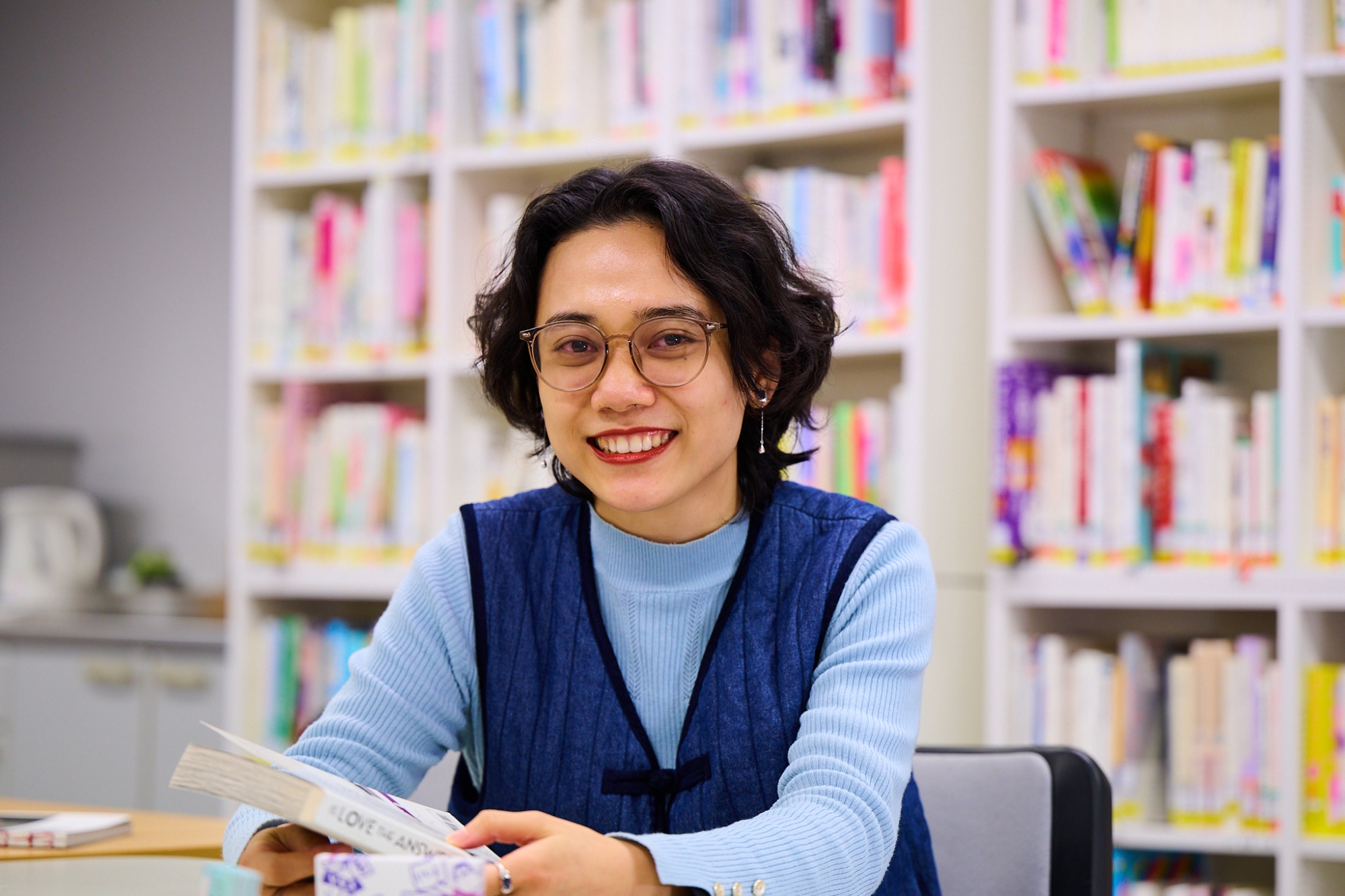Building Belonging: How Waseda University’s Gender and Sexuality Center Supports a Queer Student
Tue, Mar 4, 2025-
Tags
University life is often a time of exploration, growth, and self-discovery. For me, this journey also includes understanding my gender and sexuality in deeper, more personal ways. Waseda University’s Gender and Sexuality Center (GS Center), with its excellent counseling services, communal spaces, and events, has become an integral part of my support system. Through its counseling service, I found a safe space to process my emotions and embrace my identity. Beyond that, the GS Center also connected me with a strong queer community, fostering solidarity and visibility on campus. More than just a resource, it has also become a home that gives me a sense of belonging and continues to empower me as a queer person.
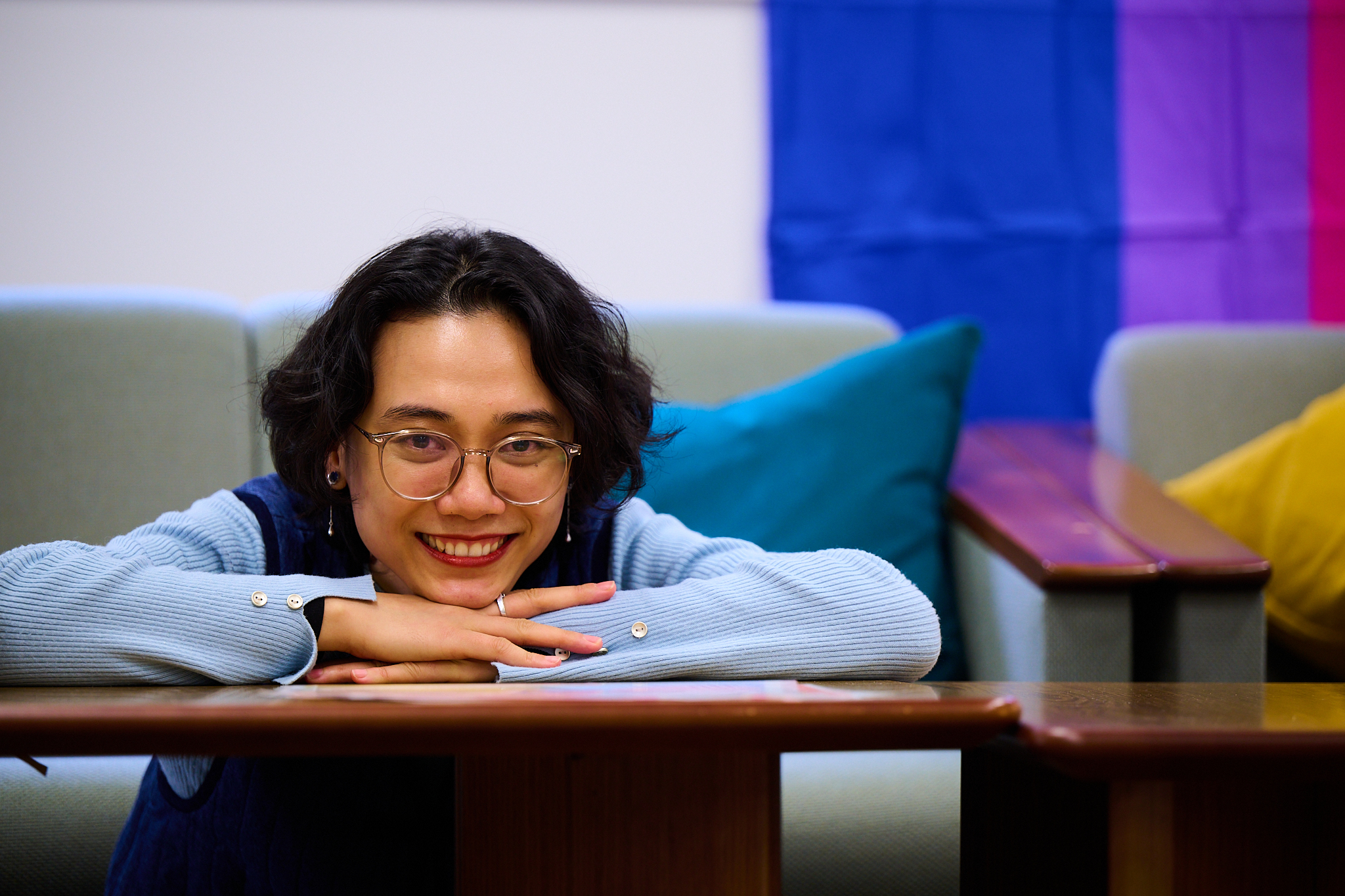
Counseling at the GS Center
I first sought out counseling during a period of grief and loneliness amidst academic turbulence. I had lost two close family members in rapid succession during the pandemic, was stranded in Japan due to travel restrictions, and struggled to progress through my master’s degree. At the same time, I faced societal pressures tied to my woman-presenting identity. I had reached a so-called “marriageable age,” yet I stubbornly pursued higher education, showing no interest in settling down with a man.
My counseling journey actually began with Waseda University’s Student Counseling Room, an individual counseling service available on every campus. My counselor was kind and compassionate, guiding me through my emotional turmoil and helped me identify the deeper roots of my struggles with empathy and understanding. Recognizing that much of my distress stemmed from societal and internalized pressures related to my gender and sexuality, she referred me to the GS Center for more specialized support that could help me come to terms with my queerness.
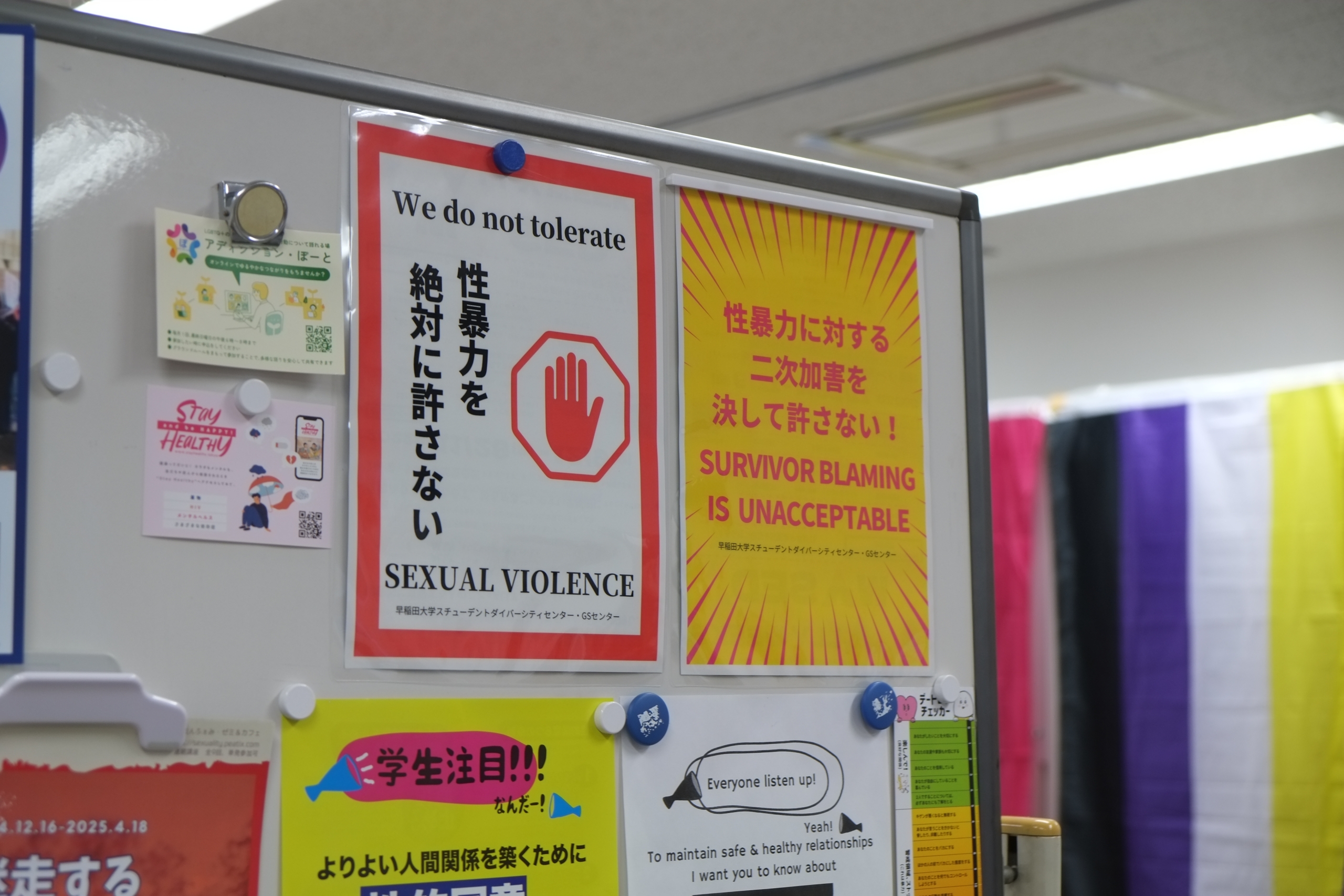
At the GS Center, I was provided with a safe, affirming space to explore my identity and process my struggles with kindness and without judgment. For the first time, I was neither criticized nor rejected for defying gender norms and for my lack of interest in a socially-accepted heterosexual relationship that would eventually lead to marriage. In these sessions, my internalized struggles and past experiences of harassment were gently teased out and I was able to confront them with newfound clarity. Through the GS Center’s support, I was encouraged to embrace all of my so-called “quirks” and move forward from past wounds.
I believe that one of the most valuable aspects of counseling at the GS Center is its intersectional approach. Counselors recognize that gender and sexuality do not exist in isolation; rather, they are affected by cultural backgrounds, societal structures, and personal histories. Counseling there helped me recognize how my identities shape my experiences in academia, relationships, and future aspirations. I became aware of the ways societal structures and institutional norms intersect with my lived reality, influencing my sense of belonging, my ambitions, and even the way I navigate professional and personal spaces.
My time at the GS Center wasn’t just about learning to accept myself but also about empowerment. It gave me the strength to reclaim my agency in a world that tries to define me before I even have the chance to define myself. And, what started as a way to process grief and cope with academic struggles became a transformative experience of experimentation, acceptance, and empowerment. With the guidance of compassionate counselors, I eventually began to untangle and accept the complexity of my gender and sexuality and explore how my identities shape my reality and experiences.
Queer solidarity on campus
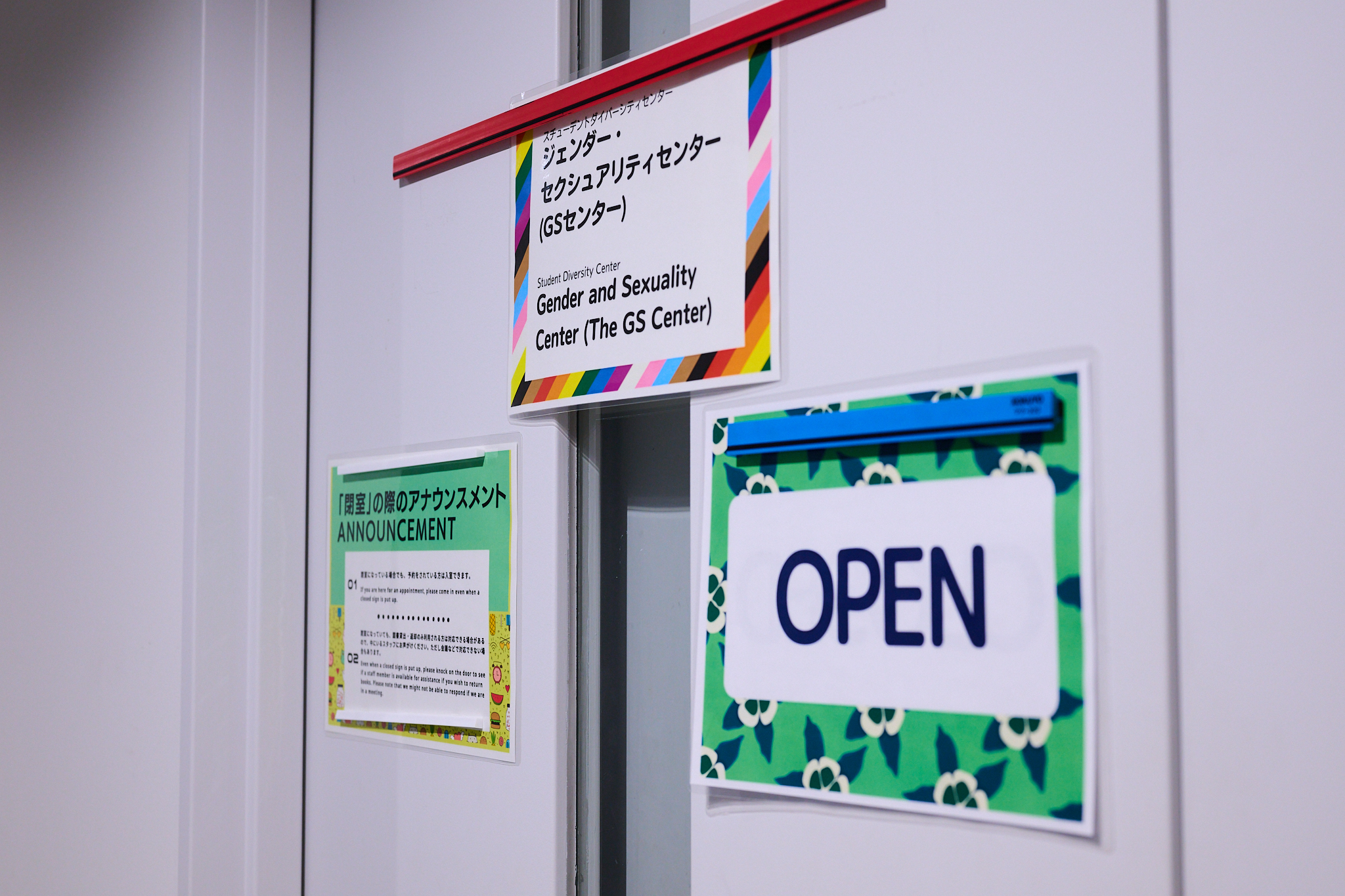
Beyond counseling, the GS Center helped me connect with a network of queer friends who share similar experiences. It also provides me with a sense of safety and solidarity on campus.
In my opinion, the rising visibility of the Center has had a profound impact, not just on campus policies or events, but on everyday interactions. I began to notice subtle yet meaningful changes around me: friends openly discussing LGBTQIA+ topics in various settings and professors sharing information about LGBTQ+ awareness and upcoming events in class. These behaviors have normalized conversations and debates on queerness in academic spaces and, although seemingly small, they contribute to an environment where I feel acknowledged and included.
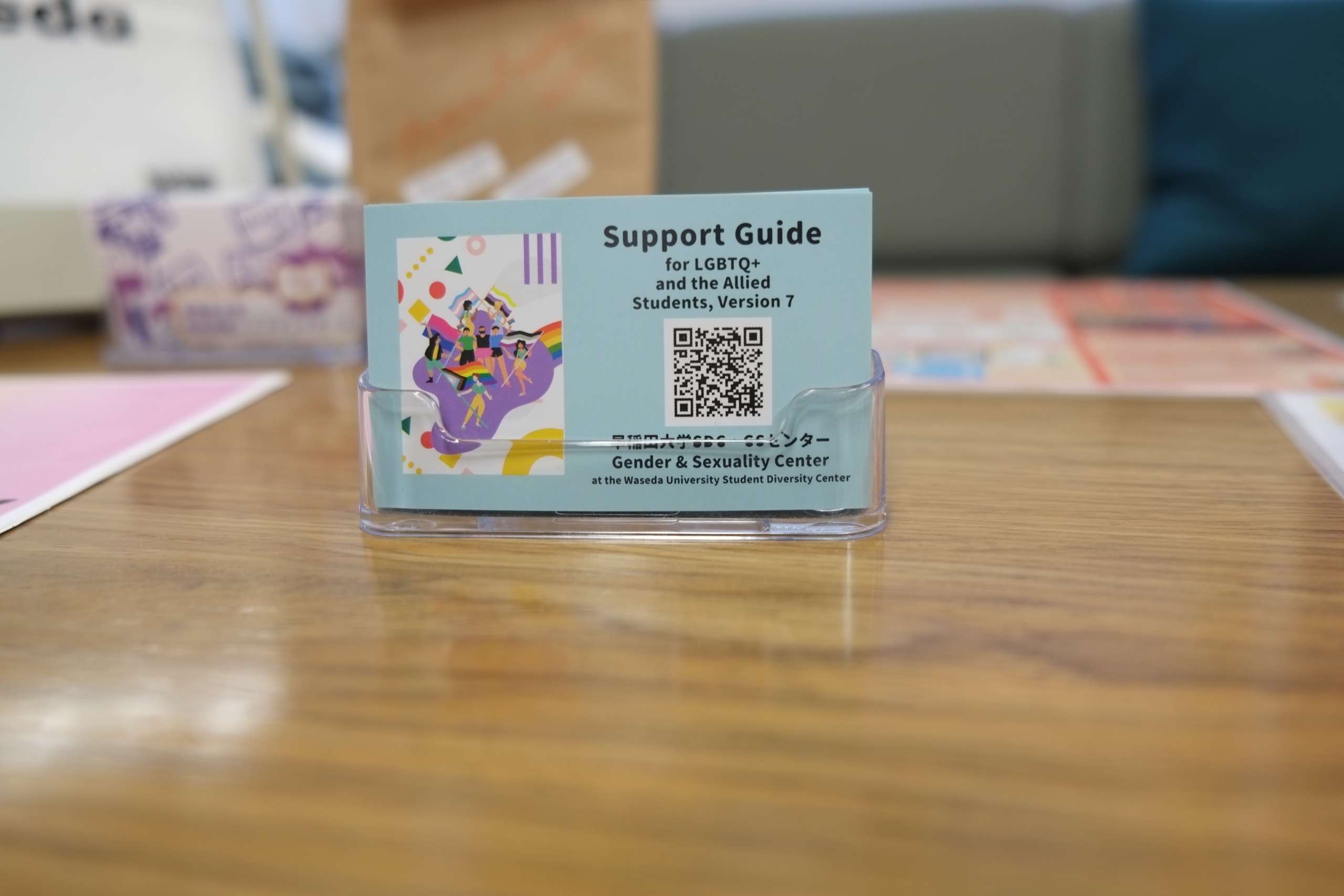
The impact of the GS Center also extends beyond the classroom. Through its communal spaces and events, I have met people who truly understand what it means to navigate the world as a queer person. These friendships extend beyond my university life as my friends give me support and fill my days with joy, laughter, and a shared sense of belonging. And then there are the moments that go beyond personal connections: at Waseda’s Pride Parade, I marched alongside friends and allies, feeling a visibility and acceptance I never imagined possible. Seeing faculties, students, and staff celebrating together made it clear that at Waseda University, LGBTQIA+ people are not just tolerated but valued.
There is a collective shift happening and it is one that makes Waseda University feel like a safer, more inclusive place to be.
More than a resource, a home
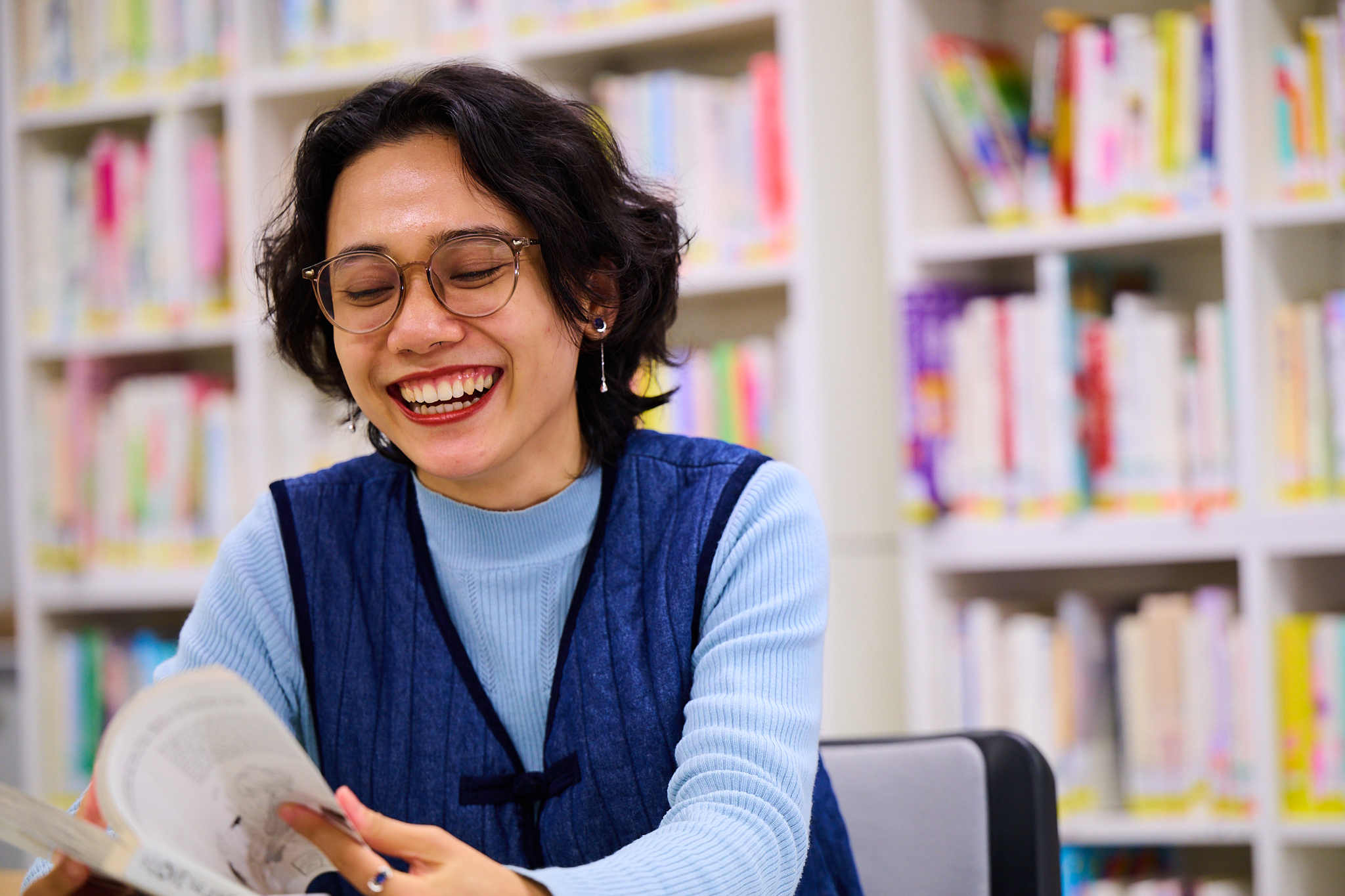
The presence of the GS Center has not just given me resources, it has also given me a home. It has shown me that change is possible, that conversations matter, and that visibility can create safer, more welcoming spaces for all of us. As the GS Center continues to thrive, I know that future queer students will arrive at Waseda and see what I now see: a campus where they can truly be themselves.
I believe our university’s investment for the GS Center is about more than just mental health care. It’s a commitment to creating an inclusive space where every student feels seen, valued, and accepted. Walking into the GS Center, I know I’m stepping into a space where I don’t have to explain or justify who I am— I can simply exist. Having dedicated counselors who specialize in queer experiences can be life-changing for those who are seeking to understand or experiment with their identity. Likewise, having a network of queer and allies to lean on and a variety of queer-oriented events to participate in is a blessing that the university’s LGBTQIA+ population deserve.
If you are questioning, exploring, or simply seeking a safe space to be, consider reaching out to the GS Center. You might not only find the support you need but also a community that understands you. The GS Center changed my life; it helped me find clarity, resilience, and a sense of belonging. You deserve that too.
This article was written by the following Student Contributor:
Srey Sokuncharia
Graduate School of Creative Science and Engineering


